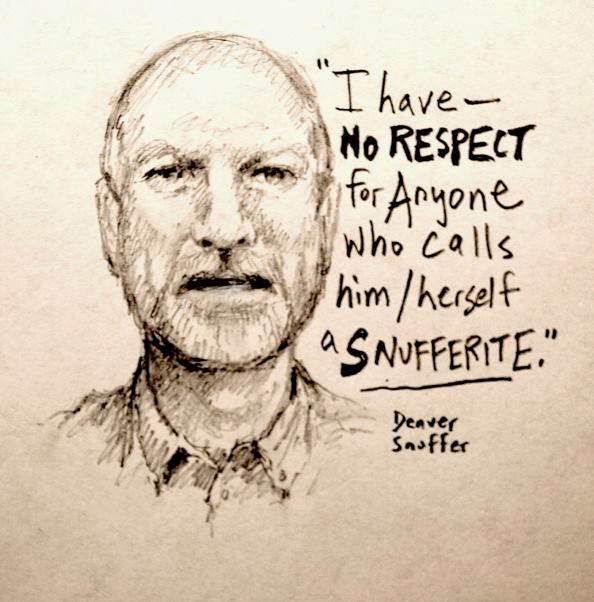Denver Snuffer‘s apostasy from the LDS Church has generated a lot of heat. A recent major story in the sltrib.com about Snuffer and his movement has been wildly popular. His books generate a lot of discussion and his presentations are well attended. His doctrinal perspectives are mainly popular among conservative Mormons, zealots if you will. Insisting that the LDS Church has departed from Joseph Smith’s preachings and practices, Snuffer and his Remnant movement (Snuffer prefers it not be called a church) focus on issues like:
- the Second Coming
- extreme food storage and prepping
- dissecting the Holy Writ
- importance of personal revelation
- need for additional scriptures
- less of a corporate organization
While these issues don’t resonate with me, the eventual evolution of Snuffer’s organization does. According to Peggy Fletcher Stack:
Before long, hundreds of like-minded seekers traveled to hear him speak — in St. George, Phoenix and Boise — and poured out of their respective LDS pews to form “fellowships,” or small groups, usually gathering in houses and yearning for, well, something more.
The Remnant, as some began to call themselves, would be radically democratic, a “federation of fellowships” with no clear leader, no rigid rules, no prescribed offices, no formal organization — setting themselves apart from what they see as the ultra-controlled and controlling LDS administration operating out of a grand old building and a skyscraper in downtown Salt Lake City.
And they emphasize the need for local control of funds:
Tithing monies remain in local fellowships, used for the poor in their midst, and are not sent to any central headquarters. There isn’t one.
This Remnant organizational experiment is interesting and bears watching. Although I don’t understand how a movement can have a prophet with a charismatic personality and still pretend to be leaderless. Snuffer, for example, believes that he has had direct conversations with Jesus Christ. How can he help but be considered the titular head of the movement?
I am interested in seeing how the movement evolves. Can it remain democratic and somewhat leaderless? Will the home churching model for religious services survive? Will the movement survive?





